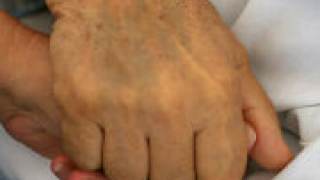Court of Appeal hears crucial end of life cases

The Court of Appeal is this week hearing the cases of two paralysed men who are seeking to change end of life laws.
Paul Lamb (58) - who was left seriously disabled by a car accident - wants a doctor to be able to take his life without facing murder charges.
He has taken up the case of Tony Nicklinson, a locked-in syndrome sufferer who died shortly after losing his legal bid to end his life last year.
The other man, known only as Martin (48) and who also suffers from locked-in syndrome, wants a change in the way that those who assist in a suicide are prosecuted.
The cases will be heard over several days by the Lord Chief Justice, Lord Judge, sitting with Master of the Rolls Lord Dyson and Lord Justice Elias in London.
Euthanasia
Mr Lamb's bid goes further than requesting an assisted suicide in that he is seeking to legalise full scale euthanasia. This is because he is so severely disabled that he would be unable to take the final steps to end his life and would need a doctor to kill him.
Mr Lamb is therefore asking for any doctor who takes his life to have a defence against a murder charge.
The defence sought is “necessity” which means that it will be argued that it was “necessary” for the doctor to take action in order to stop intolerable suffering.
Assisted suicide
In Martin’s case it will be argued that the current guidelines on prosecution in assisted suicide cases should be changed "so that the position is clear for health professionals, to allow them to assist him to end his life".
Currently, assisting someone in the commission of a suicide is a serious criminal offence punishable by up to 14 years’ imprisonment.
Rejected
Last year, the High Court rejected Mr Nicklinson and Martin’s case after ruling that it was for Parliament and not the courts to change the law in this area.
Nicklinson’s wife – who is also a party to the proceedings – vowed to continue her husband’s campaign and was granted permission to appeal the High Court’s ruling earlier this year.
Mr Nicklinson had also argued that the principle of necessity should allow a doctor to end his life without facing murder charges.
Not case of “sympathy”
At the outset of this week’s hearing, Lord Judge said that while he was aware of the “desperate situation” of the two appellants, he stated: "we cannot decide this case as a matter of personal sympathy".
He added that the cases had to be decided on the "basis of principles of law" after the court had heard all the arguments.
The nature of the two cases raises serious concerns about public safety should doctors be given the authority to kill.
Disincentive
Dr Peter Saunders, CEO of Christian Medical Fellowship, previously said:
“There are many people who already stand to gain financially or emotionally from the death of particular elderly or disabled family members and they do not need encouragement. This is why the present law is necessary. Through the penalties it holds in reserve it acts as a powerful disincentive to exploitation and abuse whilst giving some prosecutorial and judicial discretion in hard cases. It provides the best balance and does not need changing.”
Sources:
Related Stories:
Paralysed man continues push for “right-to-die”
Judge upholds end of life laws in Tony Nicklinson case
Tony Nicklinson’s wife permitted to appeal right-to-die ruling
